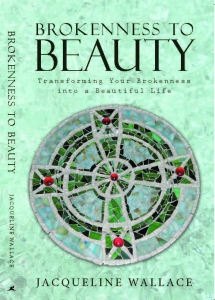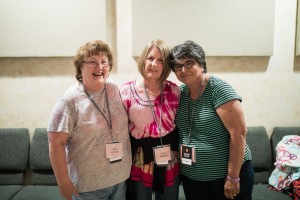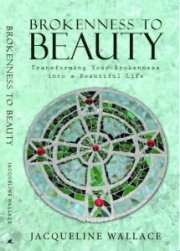Love is …
If I could speak all the languages of earth and of angels, but didn’t love others, I would only be a noisy gong or a clanging cymbal. 2 If I had the gift of prophecy, and if I understood all of God’s secret plans and possessed all knowledge, and if I had such faith that I could move mountains, but didn’t love others, I would be nothing. 3 If I gave everything I have to the poor and even sacrificed my body, I could boast about it; but if I didn’t love others, I would have gained nothing.
4 Love is patient and kind. Love is not jealous or boastful or proud 5 or rude. It does not demand its own way. It is not irritable, and it keeps no record of being wronged. 6 It does not rejoice about injustice but rejoices whenever the truth wins out. 7 Love never gives up, never loses faith, is always hopeful, and endures through every circumstance.
8 Prophecy and speaking in unknown languages and special knowledge will become useless. But love will last forever! 9 Now our knowledge is partial and incomplete, and even the gift of prophecy reveals only part of the whole picture!10 But when the time of perfection comes, these partial things will become useless.
11 When I was a child, I spoke and thought and reasoned as a child. But when I grew up, I put away childish things. 12 Now we see things imperfectly, like puzzling reflections in a mirror, but then we will see everything with perfect clarity. All that I know now is partial and incomplete, but then I will know everything completely, just as God now knows me completely.
13 Three things will last forever—faith, hope, and love—and the greatest of these is love (1 Corinthians 13 NLT).
Love is … easy, love is hard. Love is … simple, love is profound. Love is … a command, love is a choice.
Jesus said to his disciples, “You must love each another, just as I have loved you” (John 13:34 CEV). Jesus means these words for me because I declare I am his disciple, a learner and one who seeks to obey him. If you are his disciple, this command is for you as well.
My choice to love was made when I chose to follow Jesus. Same for you. We chose to obey his words, his commands. And he commands us to love each other.
This love is not just human love for friends. This love is well beyond and above that love. This is the “as I have loved you” love of Jesus; God’s love.*
“This is my commandment: love each other just as I have loved you. No one has greater love than to give up one’s life for one’s friends” (John 15:12-13 CEB).
“As I have loved you.” Now that’s a thought we can chew on for some time.
As I move toward the final stages of writing prior to publishing the Bible Study for my book, Brokenness to Beauty: Transforming Your Brokenness into a Beautiful Life, I’ve crafted a page of etiquette for Bible study group behavior.
Sounds funny, a page on etiquette, but these reminders are needed. The points simply remind us of how we should act with one another. It dawned on me that these points of etiquette are actually ways we can love one another in a small group setting. Or anywhere, anytime.
I want to share with you some of the easy ways to love one another, excerpted from my Bible study group etiquette page:
“Value each person in your little community of the Bible study group. Give each other the respect due each one. Commit to:
- Show up. Someone said that 90% of any task is just showing up. Be at the group meetings (barring an emergency). And when there, be present. “Be Here Now,” attentive and engaged in the moment. This is for your own benefit as well as the benefit of the others. You never know what God may speak to you through another person, or what God may impress on another through you. Sometimes you just being there is all the encouragement someone else needs (Hebrews 10:24–25).
- Do your work. The week before you meet, do the work for the upcoming lesson in preparation for the group time. The more effort you put into the study, the more you will get out of it. Solomon said, “The soul (appetite) of the lazy person craves and gets nothing [for lethargy overcomes ambition], but the soul (appetite) of the diligent [who works willingly] is rich and abundantly supplied” (Proverbs 13:4 AMP).
- Be generous and share the discussion time. Be short-winded so others may also participate in the discussions (1 Peter 5:5–7).
- Be a better listener than a talker. Bible study discussions are not the place for giving advice or counseling. You are not meeting together to solve anyone’s problems but to learn what God has to say in his Word. “Understand this, my beloved brothers and sisters. Let everyone be quick to hear [be a careful, thoughtful listener], slow to speak [a speaker of carefully chosen words and], slow to anger [patient, reflective, forgiving] (James 1:19 AMP).
- Be trustworthy as you listen. What is shared in the group discussions stays a secret with the group. These things are not to be told to anyone else. “He who goes about as a gossip reveals secrets, but he who is trustworthy and faithful keeps a matter hidden” (Proverbs 11:13 AMP).
- Be a Berean Christian. When questions come up, don’t default to traditional, current, or even “common sense” ideas, but search the Scriptures like the Bereans did to find out what God has to say about the issue. He does have a word to say about it. And unlike the words of men, God’s Word “endures forever” (Acts 17:10–12; 1 Thessalonians 5:21; 1 Peter 1:22–25).
These are some easy, simple, yet thoughtful ways we can love one another in any group setting, and these few guidelines will serve as our standard of etiquette for this Bible study group.”
Though the above points are designed for a small group setting, they are applicable in most life situations. I’ll let you make the leap to apply these principles, rooted in God’s Word, to your everyday life, at home, at work, at school, at church, and everywhere. I’m working on it too.
“I give you a new command: Love one another. Just as I have loved you, you are also to love one another. By this everyone will know that you are my disciples, if you love one another” (John 13:34–35 CSB, emphasis added).

How can I move from my limited, human brotherly love to Jesus’ love, to love as he has loved us? A song just reminded me of the only way– “I’ve Been Crucified with Christ,” (by Robin Mark) quoting Galatians 2:20:
“I have been crucified with Christ, and I no longer live, but Christ lives in me.The life I now live in the body, I live by faith in the Son of God, who loved me and gave himself for me.” (Galatians 2:20 CSB, emphasis added)
Listen to the song here: https://www.youtube.com/watch?v=hoZWRfXdh4w
I want to cooperate with Christ and let him live his life through me. That’s the only way to love others as he loved us.
Love is … all of the above, and so much more. In Christ we can do this.
The Bible Study for Brokenness to Beauty has yet to be published; hopefully, by autumn it will be available. However, the book Brokenness to Beauty: Transforming Your Brokenness into a Beautiful Life may be purchased now at Amazon books. Click here to go to Amazon.
*Agape love: “Agape love involves faithfulness, commitment, and an act of the will. It is distinguished from the other types of love by its lofty moral nature and strong character. Agape love is beautifully described in 1 Corinthians 13. https://www.gotquestions.org/agape-love.html
Scriptures are taken from https://www.biblegateway.com







